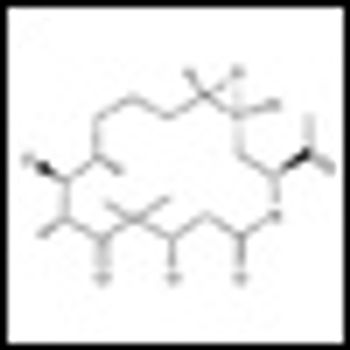
Cephalon recently announced that the US Food and Drug Administration (FDA) has approved bendamustine hydrochloride (Treanda) for the treatment of patients with chronic lymphocytic leukemia (CLL).

Your AI-Trained Oncology Knowledge Connection!


Cephalon recently announced that the US Food and Drug Administration (FDA) has approved bendamustine hydrochloride (Treanda) for the treatment of patients with chronic lymphocytic leukemia (CLL).

Merck & Co recently announced that the US Food and Drug Administration (FDA) has accepted, and designated for priority review, the supplemental Biologics License Application (sBLA) for its recombinant human papillomavirus quadrivalent vaccine (Gardasil) for potential use in women aged 27 through 45.

Supratek Pharma recently announced that the US Food and Drug Administration (FDA) has granted orphan drug designation to SP1049C for the treatment of gastric cancer.

This article reviews recent findings from clinical trials of epothilones and discusses future directions for the use of these agents in cancer therapy, with a focus on the two most-studied epothilones to date: ixabepilone and patupilone.

Epothilones, representing a newer class of naturally occurring antimicrotubule macrolides, have emerged as cytotoxic agents with significant antitumor activity against tumors that are resistant to taxanes.

Ms. Donovan and Dr. Vahdat present a review of the literature on a novel class of agents, the epothilones, focusing in particular on the two most-investigated agents to date-patupilone and ixabepilone (Ixempra).

Pohl and colleagues have provided a concise overview of current treatment options for metastatic colorectal cancer (mCRC). However, the authors do not provide personal insights as to what direction this burgeoning field will take next.

Dr. Pohl and colleagues have provided a comprehensive and well written overview of the current landscape of targeted agents and chemotherapy in advanced colorectal cancer.

The introduction of imatinib mesylate (Gleevec) has dramatically changed the management and prognostic outlook of patients with chronic myeloid leukemia (CML).

Chronic myelogeneous leukemia (CML) is a biologically unique neoplasm resulting from a mutation producing a single abnormal protein that induces unregulated proliferation of myelopoiesis. Imatinib mesylate (Gleevec) profoundly inhibits the chimeric bcr/abl tyrosine kinase, and has dramatically improved the outlook for patients with CML in chronic phase.

The introduction of the tyrosine kinase inhibitor imatinib mesylate (Gleevec) has profoundly changed the treatment paradigm for patients with chronic myelogenous leukemia (CML).

The management of patients with chronic myelogenous leukemia (CML) has been altered dramatically since the introduction of tyrosine kinase inhibitors by Druker et al in the late 1990s.

Drs. Rini and Bukowski do an excellent job of updating and commenting on the rapidly evolving field of therapy for metastatic renal cell carcinoma (RCC).

Renal cell carcinoma (RCC) has been considered one of the most difficult tumors to treat for about 20 years. Chemotherapy and radiotherapy have almost no efficacy in this tumor, and cytokines (interleukin [IL]-2 [Proleukin] and interferon) have remained the only available treatment for about 20 years, with a small proportion of patients benefiting from these treatments.

Recent advances in the understanding of the biology of renal cell carcinoma (RCC) have been translated into clinical treatment options in metastatic disease.

Colorectal cancer is one of the leading causes of cancer-related death worldwide, with almost 20% of all patients presenting with metastatic disease at the time of their diagnosis. The treatment regimens and options of metastatic colorectal cancer have significantly changed in the last 10 years, leading to an improvement of response rates to about 50%, progression-free survival of about 10 months, and overall survival reaching over 2 years.

It is with great sadness that the Angiogenesis Foundation reflects on the passing of Dr. Judah Folkman, founder and pioneer of the field of angiogenesis research.